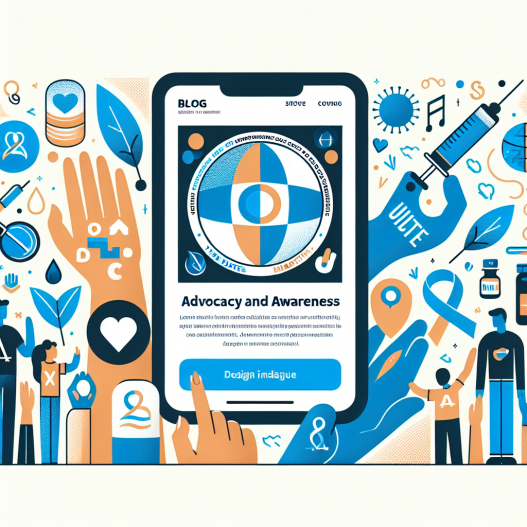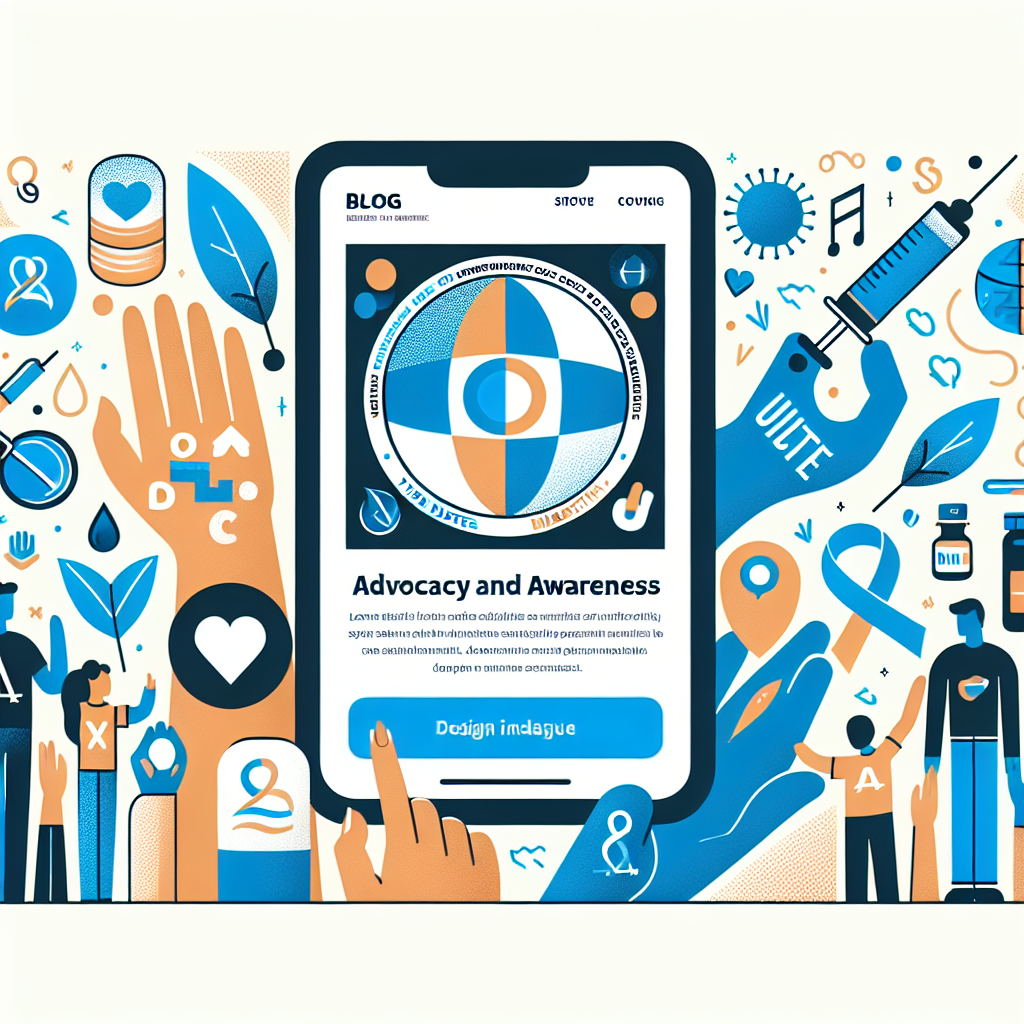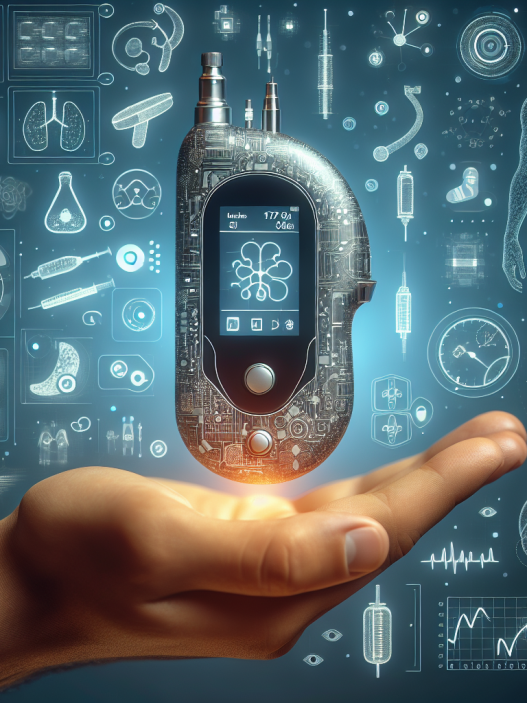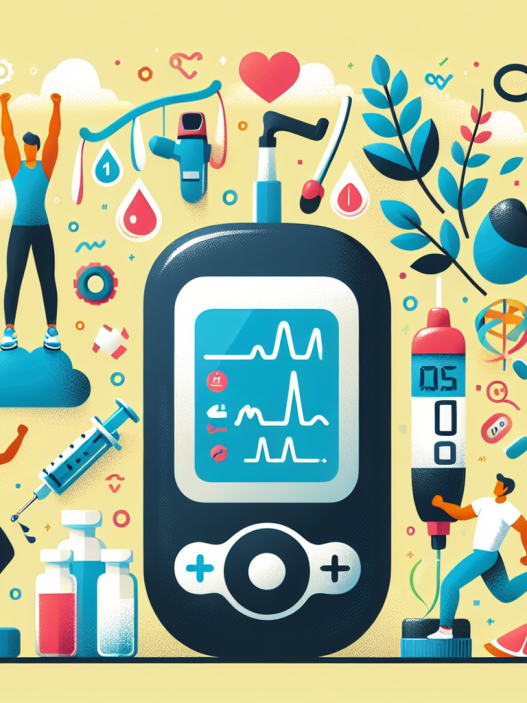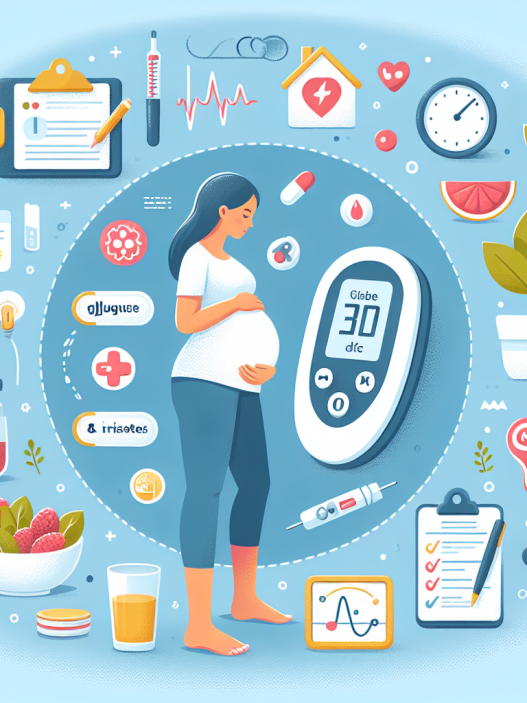[ad_1]
Type 1 diabetes (T1D) is a complex autoimmune condition that affects millions of individuals worldwide. With no known cure, advocacy and awareness are essential in supporting the Type 1 diabetes community. This blog post will outline effective strategies for raising awareness and empowering individuals living with T1D. Whether you’re a friend, family member, healthcare professional, or advocate, this guide aims to equip you with the knowledge and tools needed to make a difference.
Importance of Advocacy in Type 1 Diabetes
Advocacy plays a critical role in the Type 1 diabetes community. It not only raises awareness about the condition but also highlights the challenges that those living with T1D face daily. Individuals with Type 1 diabetes must navigate a medical landscape filled with misinformation, stigma, and a lack of adequate resources. Advocacy helps to amplify their voices, draw attention to their needs, and push for policies that can improve their lives. This can involve lobbying for better healthcare access, funding for research, and creating supportive environments in schools and workplaces.
Moreover, advocacy fosters a sense of community. Organizations and groups dedicated to T1D provide platforms for individuals to connect. They offer spaces where members can share experiences, tips, and encouragement, proving that no one has to face this condition alone. Whether it’s through social media campaigns, community events, or educational workshops, the importance of advocacy cannot be overstated; it serves as the backbone for change and support in the Type 1 diabetes community.
Ways to Raise Awareness for Type 1 Diabetes
Raising awareness about Type 1 diabetes is essential not just for fostering understanding but also for encouraging contributions to research and support networks. One effective way to raise awareness is through social media campaigns. Platforms like Facebook, Twitter, and Instagram allow for sharing personal stories, statistics, and educational content about T1D. Utilizing hashtags specific to Type 1 diabetes can help broaden the audience reach, encouraging others to join the conversation and share their own stories.
In addition to social media, hosting or participating in local events can significantly impact awareness levels. Organizing community walks, health fairs, or educational seminars helps to engage the public and provide valuable information about T1D. These events can also serve as fundraising opportunities, generating financial support for research and local organizations dedicated to aiding those with Type 1 diabetes.
Educational programs for schools, workplaces, and community organizations are also crucial in raising awareness. By providing resources and training on managing Type 1 diabetes, you create a more knowledgeable and supportive environment. Workshops can cover topics like recognizing hypoglycemia, understanding insulin delivery methods, and managing T1D during sports or physical activity. Such initiatives not only raise awareness but also promote inclusivity, making it easier for individuals with T1D to thrive.
Building Community Support Networks
Community support networks are essential for individuals with Type 1 diabetes. These groups can range from local meetups to online forums where individuals share experiences, provide advice, and offer emotional support. By connecting with others who understand the daily realities of living with T1D, individuals can feel less isolated and more empowered.
Establishing a local support group can be a rewarding experience. These gatherings can serve as a platform for members to discuss challenges and successes, share resources, and engage with healthcare professionals. Moreover, these support networks foster friendships and connections that may carry into other aspects of life, creating a broader community of understanding and support.
Online support groups can be particularly beneficial for reaching a wider audience. Websites, social media platforms, and dedicated forums allow individuals to connect regardless of geographic barriers. These online spaces provide an invaluable resource for sharing information about new technologies, research findings, or coping strategies that can improve life with Type 1 diabetes.
The Role of Healthcare Professionals in Advocacy and Awareness
Healthcare professionals play a pivotal role in advocating for individuals with Type 1 diabetes. They are uniquely positioned to educate both patients and the broader community about T1D, offering credible information about the disease, its management, and the latest research. By tirelessly working to improve care practices and advocate for their patients, healthcare providers can significantly enhance the quality of life for those with T1D.
Furthermore, healthcare professionals can collaborate with advocacy organizations to facilitate awareness campaigns. Such partnerships can bear fruit by creating programs that teach others about T1D, fostering better understanding, and reducing stigma. For instance, hospital and clinic staff could conduct educational workshops in local schools or community centers, promoting greater awareness and compassion for individuals with Type 1 diabetes.
Finally, healthcare professionals should remain active in ongoing education and advocacy efforts. This includes staying informed about the latest T1D research and trends in treatment and care, which they can then communicate to their patients and the community. By doing so, they empower individuals with Type 1 diabetes to make informed decisions while continuously supporting the advocacy landscape surrounding the disease.
Fundraising Initiatives for Type 1 Diabetes Research
Fundraising is a vital part of advocacy efforts for Type 1 diabetes research. Financial resources are necessary for the development of innovative treatments, potential cures, and improved care protocols. There are numerous avenues for fundraising that can engage the community, individuals, and organizations in contributing to this important cause.
One common method is to participate in or organize fundraising events, such as charity walks or runs. These events not only raise crucial funds but also foster community spirit and awareness. Participants can seek sponsors or donations from friends and family, further expanding the reach of awareness while raising money for critical T1D research. Additionally, these events can bring people together, creating a sense of solidarity and unity among those affected by Type 1 diabetes.
Online fundraising platforms also present an effective way to engage a wider audience for contributions. Websites that facilitate peer-to-peer fundraising make it easy for individuals and organizations to create campaigns, share their stories, and invite donations. Social media can amplify these efforts significantly, allowing individuals to reach far beyond traditional fundraising methods and effectively collection funds for T1D initiatives.
Lastly, partnering with corporations can provide additional resources for fundraising efforts. Many companies offer corporate matching programs, grants, or sponsorships for charitable events. Collaborating with regional businesses can not only boost fundraising efforts but also encourage wider community involvement and support for the Type 1 diabetes cause.
Impactful Stories: Personal Narratives that Inspire Advocacy
Inspiring advocacy often comes from personal narratives of those living with Type 1 diabetes. Sharing stories can be a powerful tool for raising awareness. These narratives help humanize the condition, showcasing both its challenges and triumphs. When individuals speak openly about their experiences – including their struggles with blood sugar control, the impact of insulin on daily life, or their triumphs in managing the condition – they create connections that foster empathy and understanding.
One of the most impactful aspects of these stories is their ability to challenge stereotypes and misconceptions surrounding Type 1 diabetes. By sharing their journeys, people can educate others about what it truly means to live with T1D, distinguishing it from Type 2 diabetes and emphasizing the unique experiences faced by T1D patients. Over time, this awareness can lead to increased understanding, compassion, and support within communities.
Additionally, harnessing these narratives for advocacy can inspire collective action. Individuals empowered by their stories often become advocates themselves, participating in fundraising efforts, supporting each other in group settings, or contributing to larger awareness campaigns. When others see the positivity and resilience of those living with Type 1 diabetes, they are often moved to help and support the community actively.
By fostering an environment where personal stories and testimonials are shared openly, we create a culture of understanding, compassion, and action. This paradigm shift can lead to new avenues of support for Type 1 diabetes patients, ensuring they feel heard, valued, and empowered.
In conclusion, advocacy and awareness for Type 1 diabetes are crucial in supporting the community affected by this condition. Everyone can make a difference through education, fundraising, community building, and personal storytelling. Together, we can create an environment that promotes understanding, encourages research, and supports individuals living with Type 1 diabetes today and in the future. Let’s stand together and make a meaningful impact in the lives of countless individuals and families impacted by Type 1 diabetes.
[ad_2]










